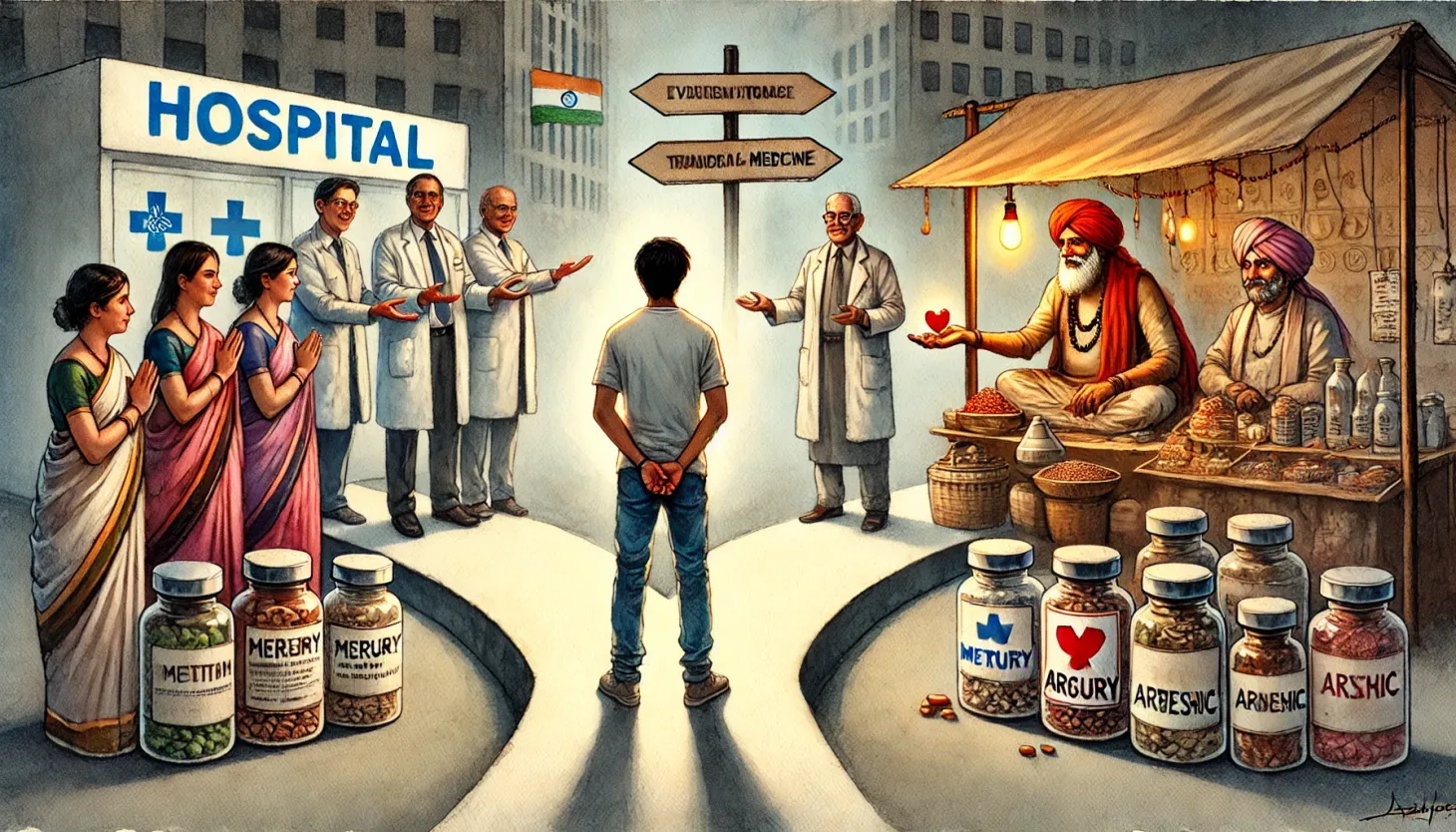When Speed Matters...And Doesn't!
There are some acute situations like acute heart attacks where speed is paramount, but there are others such as cancers and heart disease, where it is best to take your time to decide on the best course of treatment.
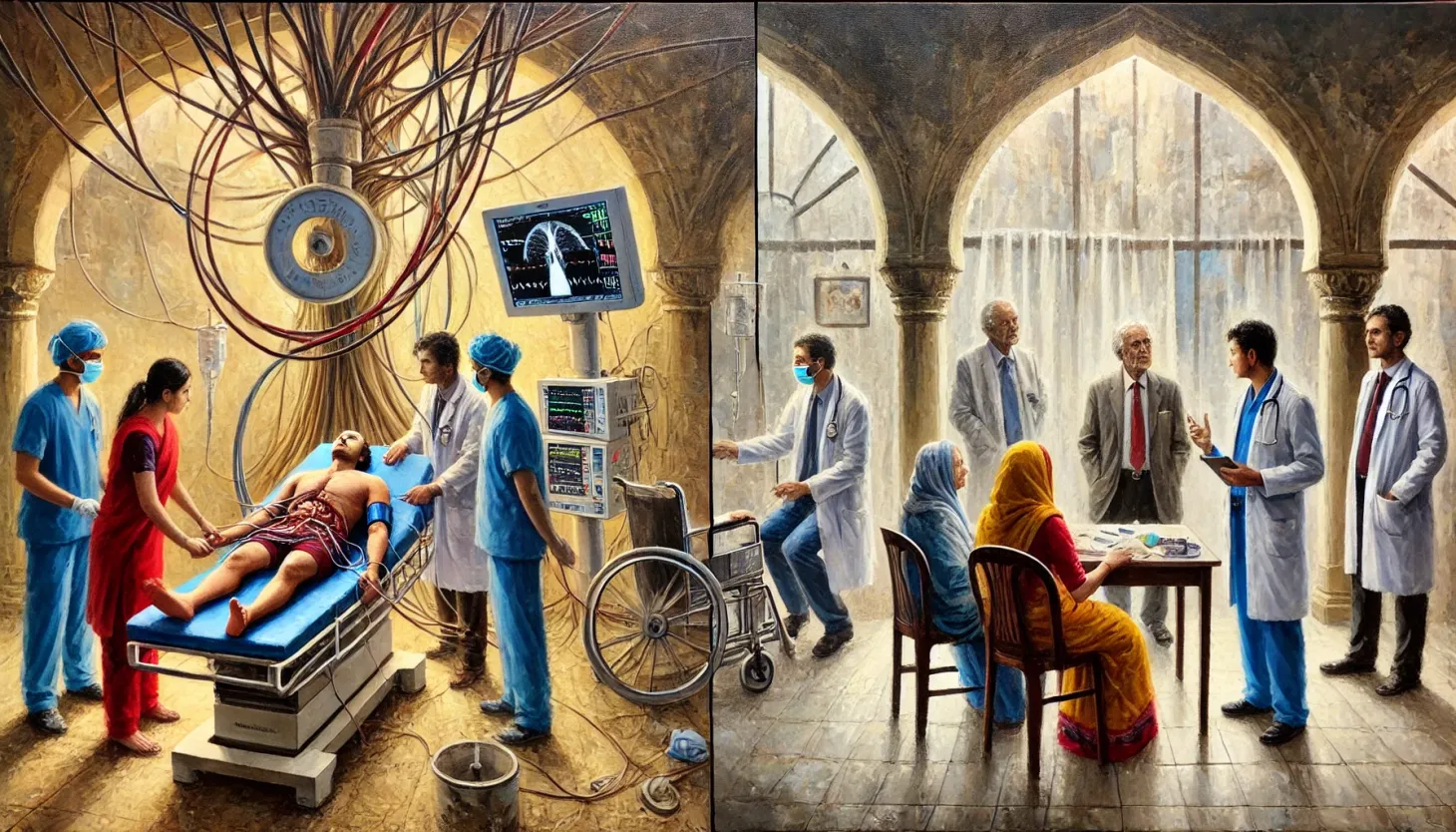
The Book - Kindle Version Now Available Worldwide
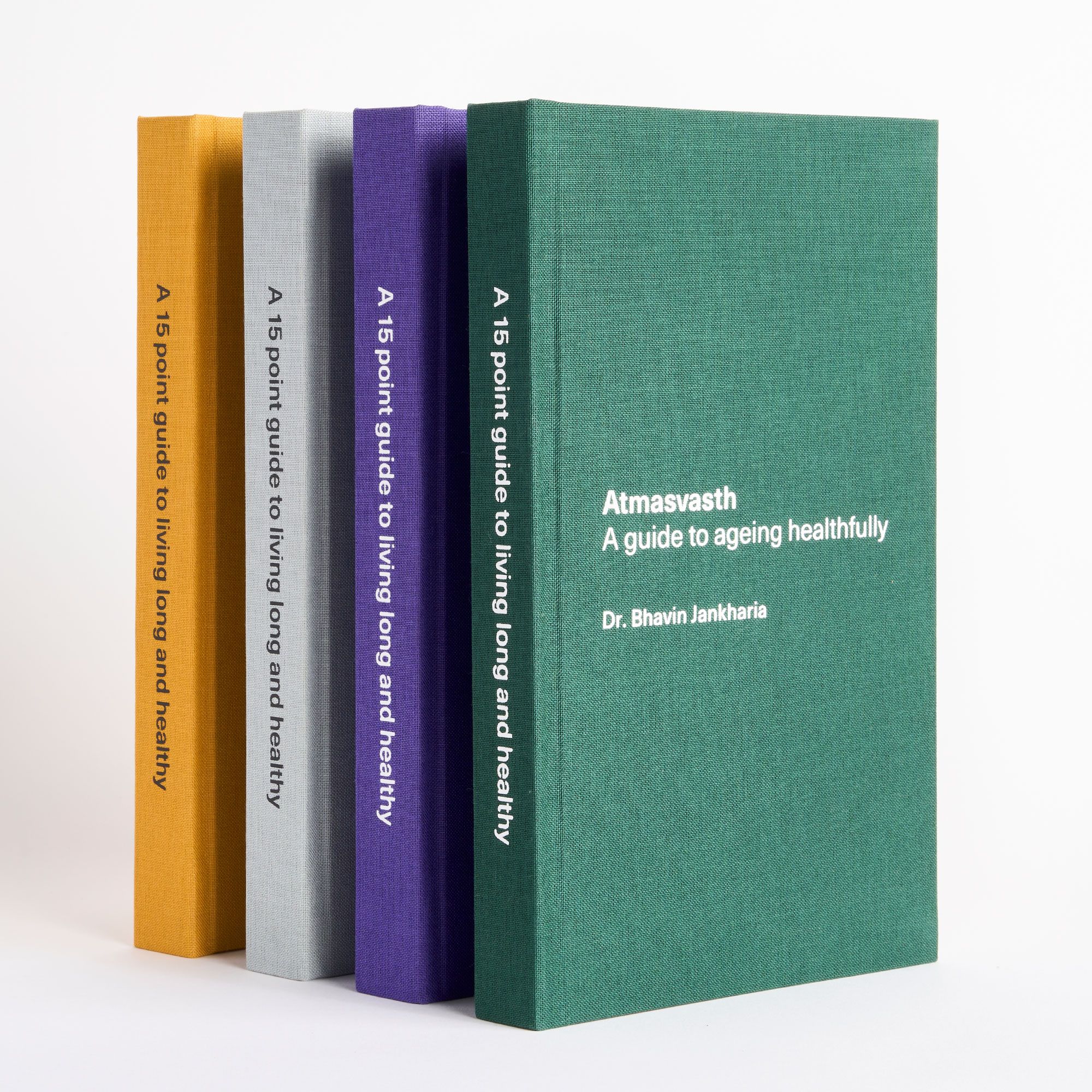
The Detailed 15-Point Guide to Live Long, Healthy
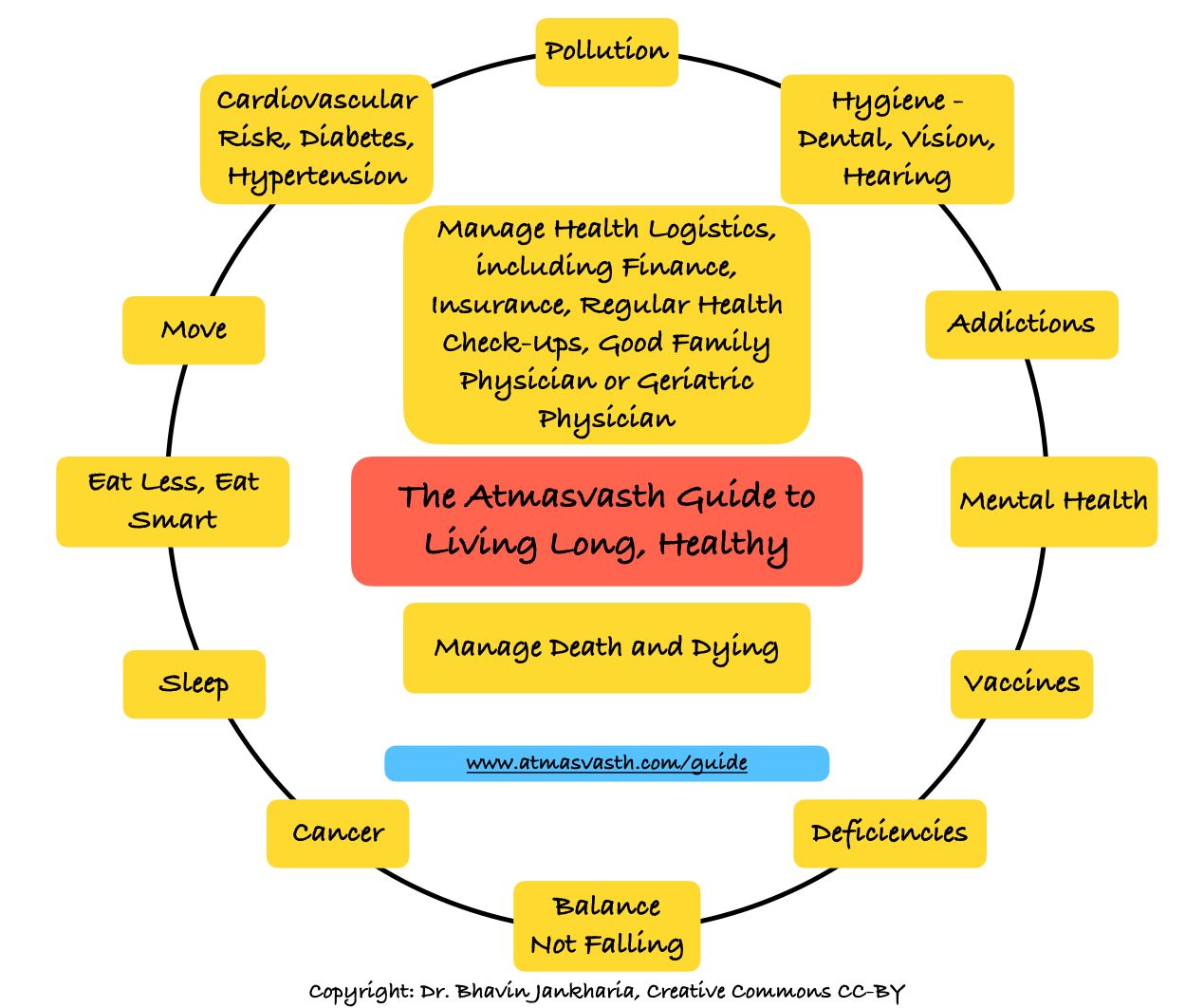
Audio
Text
Last month, two family members had medical issues.
The first relative had acute vertigo with vomiting and intense perspiration for about 4 hours at night and did not tell anyone. When the symptoms came to light in the morning, another relative quickly took them to a hospital for tests to rule out myocardial infarction (heart attack) or stroke. The final diagnosis was acute labyrinthitis (inner ear inflammation), which can be treated at home, so they came home. Though it was a false alarm, this was the correct approach.
The second relative had obstructive jaundice. After four days of dilly-dallying, they finally agreed to an endoscopy, which showed a tumor at the end of the bile duct, causing the jaundice, which was then relieved by placing a stent in the bile duct. Upon hearing about the tumor likely being cancer, the patient and relatives went into panic mode and made multiple calls to multiple doctors in a span of 2-3 hours to sort things out ASAP. Only when one of those doctors took the time to explain to them that the tumor wasn’t an emergency and would be treated step-by-step over a longer period after the pathology and test results, did they temporarily calm down.
For optimal outcomes after a hip fracture (femoral neck fracture), surgery should occur within 24 hours, ideally not later than 48 hours. A global study led by Elizabeth Armstrong [1] showed that in India, only 56% of patients reached a hospital within 24 hours after a fall and hip fracture. Logistical issues commonly delayed admission, but 25% arrived late because they thought the fracture would heal on its own. Even after admission, 62% had surgery only after 72 hours. Cost was a major reason for the delay, but with Ayushman Bharat for those who can’t afford it and now for people over 70, and insurance covering acute injuries, this situation should improve.
In India, it’s rare for a hip fracture to be operated on within 24 hours, even for the wealthy. Some hospitals have specific fast-track programs for hip fractures, but even then, it usually takes an average of 3 days to organize a hip surgery [2]. Ironically, I’ve seen breast cancers get from diagnosis to surgery in 72 hours. This is truly funny, because a breast cancer is definitely not an emergency and waiting a few days or weeks won’t matter. If cancer decision-making is fast-tracked, mistakes are often likely.
Some situations require quick action without overthinking, while others need a deep breath and time to decide on the best mode of action.
Acute heart attacks, acute strokes, acute injuries, persistent acute abdominal pain, acute breathlessness, new acute headache, sudden blindness need urgent attention. Acute strokes have the best outcomes when treated within 3-6 hours. Acute myocardial infarcts have the best outcomes when the blocked coronary artery is stented within 2 hours. This rarely happens in India, even in the best circumstances and resource-rich places, for a variety of reasons including waiting for key relatives to arrive from distant places.
Cancers, on the other hand, aren’t acute emergencies. While no one wants to wait months for treatment, a few days or weeks don’t matter. A cancer doesn’t just appear suddenly…typically it would have been growing for quite some time, for months or even years. We come to know of it only when it manifests or is picked up during a screening test… and hence can be treated without rush and hurry, with thought and understanding.
Yet, the word “cancer” often evokes intense emotional reactions, leading to a supposed medical emergency. The patient and relatives lose perspective, running helter-skelter, while true emergencies like heart attacks and strokes that need quick decisions are neglected.
To repeat. The situations below require quick action to prevent immediate death or severe disability that can impact your quality of life. These situations also showcase modern medicine’s magic. Don’t wait. Period. And, because of the speed involved, trust the doctors and the system to do what’s best for you/the patient.
- Acute abdominal pain that doesn’t subside within a few hours.
- Sudden paralysis or weakness of one side of the body or both legs or hands.
- First-time intense headache that lasts over an hour or two.
- New left chest pain, unrelated to muscle injury and/or radiating to the jaw or arm.
- Fall and pain, especially in the back or hip.
- Sudden blindness.
- Acute breathlessness and allergic reaction with body swelling.
On the other hand, if you have any of the issues listed below, these are NOT an emergency and should be managed calmly with proper decision making.
- Any cancer diagnosis that doesn’t cause acute symptoms listed above.
- Blocks in coronary arteries found due to tests like cardiac CT, but no symptoms or long-standing, chronic symptoms.
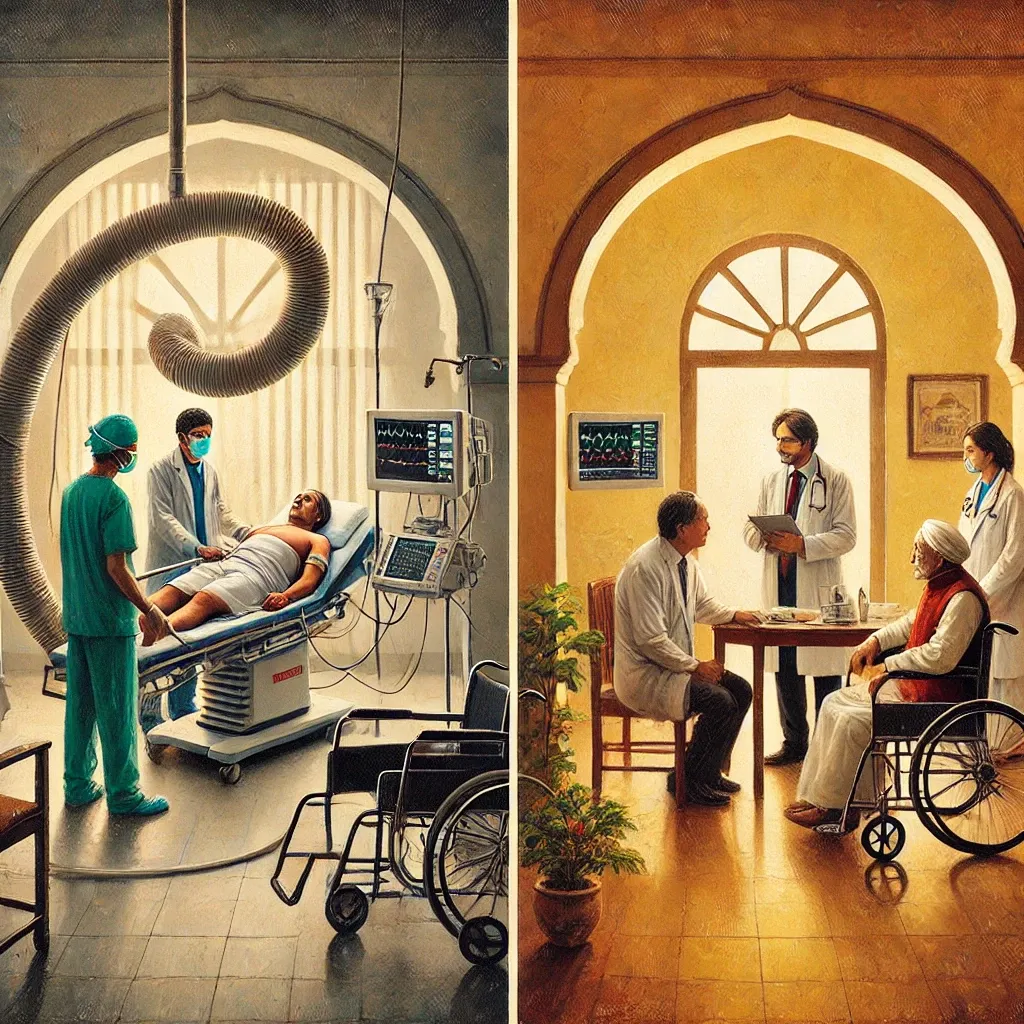
What does this mean for you and me?
In the heat of the moment, making the right decision can be tough. If unsure during an acute condition, it is better to go to the hospital’s emergency room immediately, rather than procrastinate. It’s better to return with a diagnosis of “gas causing pain” than miss a heart attack needing immediate treatment.
But, if you as a patient do not have acute symptoms, a diagnosis of cancer or a blocked heart artery will NOT be an emergency and you should take your time to make the correct, appropriate treatment decision.
FootnotesFootnotes
- Armstrong E et al. Time from injury to hip-fracture surgery in low-income and middle-income regions: a secondary analysis of data from the International Orthopaedic Multicentre Study in Fracture Care (INORMUS). Lancet Healthy Longev. 2024 Aug;5(8):e552-e562.
- Kulshrestha V et al. Outcomes of Fast-Track Multidisciplinary Care of Hip Fractures in Veterans: A Geriatric Hip Fracture Program Report. Clin Orthop Surg. 2019 Dec;11(4):388-395.
Atmasvasth Newsletter
Join the newsletter to receive the latest updates in your inbox.

